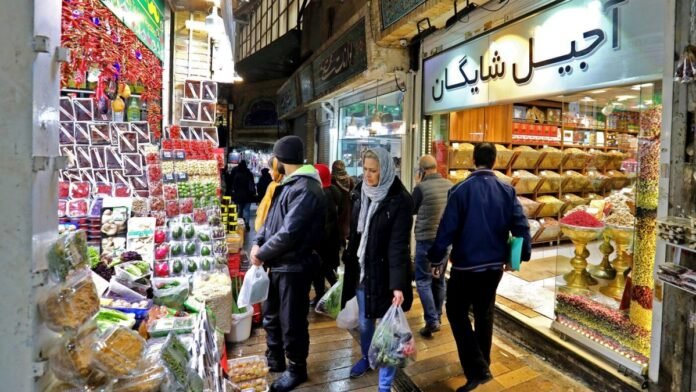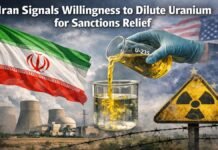
Tehran: There has been severe inflation in Iran’s market to cut subsidies on food and basic necessities. Nationwide protests have started against the decision of the Iranian government. The US dollar has reached a historic high after talks between the International Atomic Energy (IAE) Agency and the Islamic Republic of Iran failed. Therefore, there has been a lot of tension in the Tehran market and the country is in danger of bankruptcy.
The 35-nation Board of Governors of the UN’s nuclear watchdog passed a resolution on June 8 reprimanding Iran for its limited cooperation with the IAEA and the discovery of traces of uranium at three nuclear sites. The organization said that Iran has given an insufficient explanation to the world body about this.
3 countries did not participate in voting
Of the IAEA member states, only China and Russia voted against the resolution. Three other members India, Libya, and Pakistan did not take part in the voting. Prior to the recent warning, the IAEA had issued only one resolution criticizing Iran for insufficient transparency and undeclared nuclear activities in 2012, and that resolution was adopted in June 2020.

Big blow for the Iran government
The UN body’s new resolution is seen as an insult to the hardline administration of President Ibrahim Raisi, whose misadventures are reminiscent of the inaction of Iranian President Mahmoud Ahmadinejad between 2005 and 2013, whose poor foreign policy and the nuclear program he was blamed for and heavily criticized for taking and implementing bad advice.
Will there be a nuclear deal now?
Iranian officials insist that the recent proposal could not have been proposed without Israel’s intelligence-sharing and lobbying. At any time since the transition of power in Tehran and President Raisi’s take over in August last year, the JCPOA once hailed as a milestone in international diplomacy and a significant achievement in nuclear non-proliferation, is set to succumb. is close. At the same time, its effect is that Iran’s economy is deteriorating very fast and a mountain of troubles has arisen in front of Iran.
The situation in the Iranian markets has been caught in a crisis due to the recent conflict. Iran’s currency fell sharply against the US dollar after the Islamic Republic revealed its retaliatory measures, reaching an all-time high of 328,700 riyals as of Monday. Along with this, the government started reducing subsidies for essential goods to handle the country’s economy, due to which inflation in the market has increased at a rocket pace. The new prices of goods have reached the sky.
Increase in the price of bread, eggs, pasta, and chicken
Protests have erupted across the country in the past weeks after President Raisi cut subsidies on food and most basic goods and stopped allocating preferential foreign exchange for imports of wheat, cooking oil, corn, poultry, and medicine. In Iran, the prices of items like bread, eggs, pasta, chicken, and dairy have increased four times.
At the same time, according to the report of the Statistical Center of Iran, this year the inflation rate in Iran has increased to 40.2% and 70 percent has reached near the poverty line for Iran. This report has put the Iranian government in panic.




















































